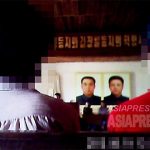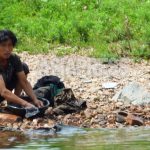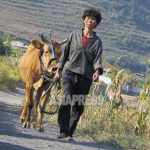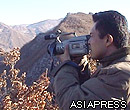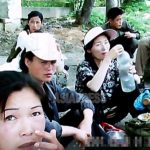◆ Too afraid to use foreign currency at markets
Meanwhile, due to the crackdown, the use of foreign currency at markets has now become much more difficult. The reporting partner explained, “It is now difficult to use foreign currency at markets. If you get caught with it, the money will be confiscated no matter what. Before, under the crackdown, officials and powerful people were forced to exchange their foreign currency for North Korean won. Now, however, there is no such forgiveness. The money is confiscated and returned to the bank. [The State Security authorities] refer to a new ‘policy’ and do not return the money.”
※ In North Korea, the term ‘policy’ refers to direct orders from Kim Jong-un.
What is the motivation behind the North Korean authorities’ strong intervention in the foreign currency market? As trade with China has been cut off since early January due to COVID-19 countermeasures, there have been few chances for North Koreans to spend their foreign currency. With that being the case, the authorities may be eyeing this moment as an opportunity to absorb foreign currency at an abnormally low exchange rate.
According to reporting partners, a task force was set up by Kim Jong-un in November 2019 to lead a crackdown on the use of foreign currency. (The North Korean leader specifically ordered for North Korean won to be treated ‘with more care’). This crackdown is said to have now stepped up a gear. Before, those who were ‘discovered’ with foreign currency on them were punished. Now, however, the task force is fielding a higher number of undercover operatives to pretend to be buyers and sellers of foreign currency.
◆ Anxiety over the future leads to stockpiling
In North Hamkyung Province, Ryanggang Province, and even Pyongyang, hoarding of Chinese goods, rice, and corn has become common. The reporting partner explained the phenomenon thusly:
“People are pessimistic, believing that it will take quite a long time for trade to be normalized due to coronavirus causing deaths in the US, China, and rest of the world. Word is spreading that planes and ships have been stopped. Due to this anxiety, there are more and more people hoarding goods. Non-wealthy people used to buy just 1-2 kilograms of food at a time, to be eaten later the same day. Now, however, people buy as much as they possibly can.”
Although hoarding has become prevalent and stocks of rice are decreasing, food shortages are said to have not yet occurred at markets.
As of May 4, the exchange rates and prices of goods in Hyesan City and in cities in North Hamkyung Province were as follows. Note: The value of the US dollar has fallen by 14% over the last month.
1 RMB = 1,220 North Korean won
1 US dollar = 8,050 North Korean won
1 kg of corn = 1,900 North Korean won
1 kg of white rice = 4,500 North Korean won
1 kg of gasoline = 13,420 North Korean won
1 kg of diesel fuel = 9,760 North Korean won
※ ASIAPRESS contacts its reporting partners in North Korea through smuggled Chinese mobile phones.
- <Inside N. Korea> Squelching the Grapevine: Secret Police Mobilized to Stem Rumors of Kim Jong-un's Ill Health (2020-05-05 11:36:19)
- <N. Korea Pro Report (Part 3)> How is N. Korea’s Economy Faring in the Face of the Coronavirus Pandemic and Continued Sanctions? A Look at the Regime’s “State Smuggling” Operations (2020-04-30 10:51:33)
- “Hunger Will Kill Us Quicker Than Coronavirus”: 91% Decline in Trade Leaves Vulnerable Locals Facing Starvation (2020-04-28 15:51:16)
- <Inside N. Korea> Collateral Damage: Border Blockade Designed to Counter Coronavirus Leads to Deadly Drug Shortage (2020-04-28 10:27:06)
- <Breaking News from N. Korea> “Who Would Be Next?”: Residents React as Rumors of Kim Jong-un’s Surgery Begin to Spread from the Border Regions (2020-04-23 17:47:13)
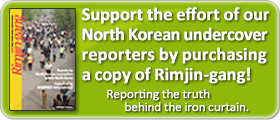 Editor’s notes on North Korean reporters
Editor’s notes on North Korean reporters
ALL REPORTS >>>
ARCHIVE(pdf) >>
DPRK MAP >>
